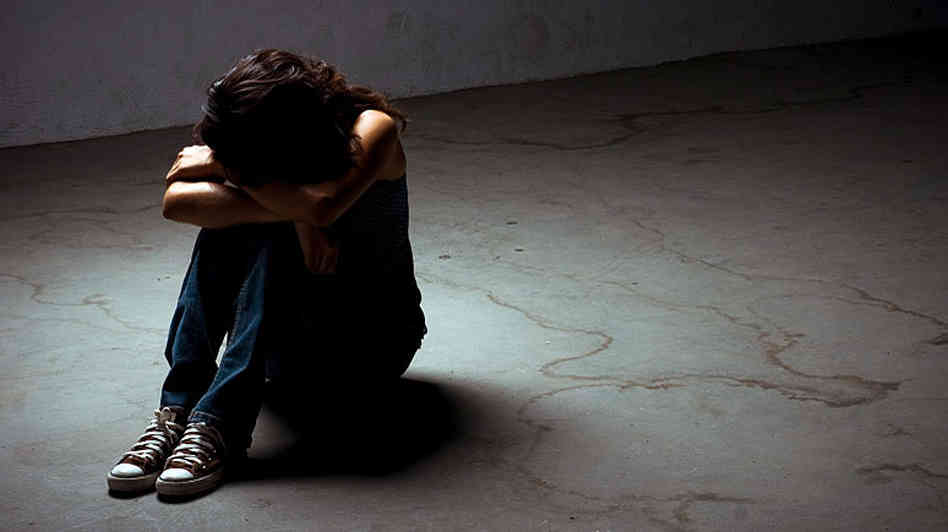Egypt's Mental Health Crisis
In a nation still plagued by the cultural shame surrounding mental illness, the phenomenon continues to grow while many are still either too scared to seek care, or are not afforded the correct outlets to do so.

Mental illness is considered by many as one of the darkest taboos in Egyptian society, exacerbating the plight of thousands of vulnerable people who feel ashamed, embarrassed, and forever tormented by their own mind.
Psychiatric illness permeates all sections of Egyptian society, with hundreds of thousands seeking psychiatric help each year, and many analysts believe that Egypt could be facing a mental health crisis.
Meanwhile the latest estimates show that suicide is on the rise across Egypt as many struggle to get the help they need amid the fear of judgement and social exclusion by their friends, co-workers and even their own families.
Ola Morsy, a consultant psychiatrist at the American University in Cairo, believes that the stigma which is still attached by many to mental illness leaves many patients risking family problems, social isolation and even death.
"I have very ill patients who have stopped taking their medication because their friends told them not to. Some families are of course very cooperative when they find out about their kids suffering. But I have lots of other patients of the same age, and their families are totally against it," Morsy says.
"They never have the opportunity to tell them, they hide their illness."
The phenomenon is all too common in a country where government spending on mental health remains nonexistent. A recent World Health Organisation report found that just 2% of government funding is spent on mental health, with just 1.44 psychiatrists available per 100,000 people.
Morsy, who has worked in Egyptian psychiatry since 1991, believes that while societal attitudes are beginning to change, many are still tied to the ill-informed beliefs of the past. Speaking about the variety of conditions she faces in her daily work, Morsy paints a picture of a country where traditional social expectations, amid the uncertainty of the current political climate, has wreaked havoc with many young minds.
Despite calls by many image-positive campaigners for wider acceptance of all body types, Morsy claims that many young Egyptians are still struggling with body image issues, and even deadly eating disorders such as anorexia and bulimia.
"In the upper social class where they are subjected to the media and all of the fashion magazines and celebrity lifestyles, they started to become very obsessed with their weight and I see this kind of body image disturbance frequently. The younger generation; they are really obsessed with their weight," Morsy elucidates.
"Right now the emphasis in TV and everywhere is on very skinny women. I have very tiny, slim girls telling me they're fat and they need to lose weight. Even if they don’t necessarily have an eating disorder like anorexia or bulimia, this kind of obsession is very common; even comorbid with other disorders that aren’t eating problems," she adds. "5-10% of the girls I see have this kind of body image issues."
Morsy claims that the country's mental health crisis has gotten so bad that her clinic is regularly fully booked, leaving specialists struggling to cope with demand. However the wide range of mind-altering illnesses affecting modern Egyptians aren't limited to negative body image.
"I see it with depression, very low self esteem, panic disorders, borderline personality disorders; I see it with totally different psychiatric disorders, not necessarily eating disorders," Morsy continues. "Depressive symptoms, personality disorders or traits of personality disorders are all too common."
Morsy also notes that mental illness has significantly increased since the revolution, suggesting that the turbulence of the past three years has taken its toll on the populace on a large scale.
"People are very stressed especially since the revolution. It added to vulnerability already existing in some people.
"People who were already suffering from illnesses became worse, especially in the younger generation. They are traumatized. During the last few years the younger generation have been passing through turmoil."
However mass media and political instability are not the only cause of what many claim is a mental illness epidemic. Morsy claims that the routine abuse of recreational drugs by the country's youth has also played a role in the erosion of the country's mental health, with Morsy citing "hash and all its derivatives."
"In the younger generation now ecstasy is very common," Morsy adds. "What’s also very common is Tramadol."
Meanwhile many professionals believe that a lack of government funding and awareness campaigns are to blame for the mental health crisis facing the country.
"The government should do more," Morsy says. "Campaigns are vital for mental illness awareness. For example in schizophrenia or severe bipolar cases in the lower social class, they never approach a psychiatrist unless it’s an extremely severe case.
"In the upper social class they start coming only when, for example, someone starts social withdrawal. We need campaigns for awareness for what is normal and what isn’t."
Notwithstanding evidence to the contorary, the picture doesn't look as bleak as it once may have done, as Morsy paints a contrasting picture between the start of her career in 1991, compared to the present day, noting that people are doing more to seek help for their psychological concerns than they ever have before.
"Of course the stigma is still there. People were very reluctant at first when I started working at AUC but now it’s gotten better. Meeting a psychiatrist was not easy," Morsy recounts. "But attitudes are starting to change albeit slowly."
Despite the ongoing battle faced by Morsy and others involved in treating psychiatric disorders, she has vowed to continues the daily fight. Morsy believes that the key to changing societal atittudes will only come when everybody - including the patients themselves - change how they view mental health issues.
"We need more awareness. I try to convince people that mental illness is like any physical illness. Some mental illnesses are pure chemical imbalances, just like diabetes for example.
"If we can combat the stigma of mental illness and consider what we call the higher brain function that is responsible for all our emotions and thinking as part of the body that needs taking care of, that would be great. If we need medicine for psychological reasons, it works just like medicine for any other problem in the body. Pure psychological abnormalities need treatment," Morsy stresses.
"People have to know that there’s nothing wrong with having a psychological problem. Support from family members is also vital. It has been proven that for example the pain of depression is more painful than cancer.
"Don’t ever underestimate psychological pain."
- Previous Article El Fusion Round Three
- Next Article Out with Old, In with Shoes
























